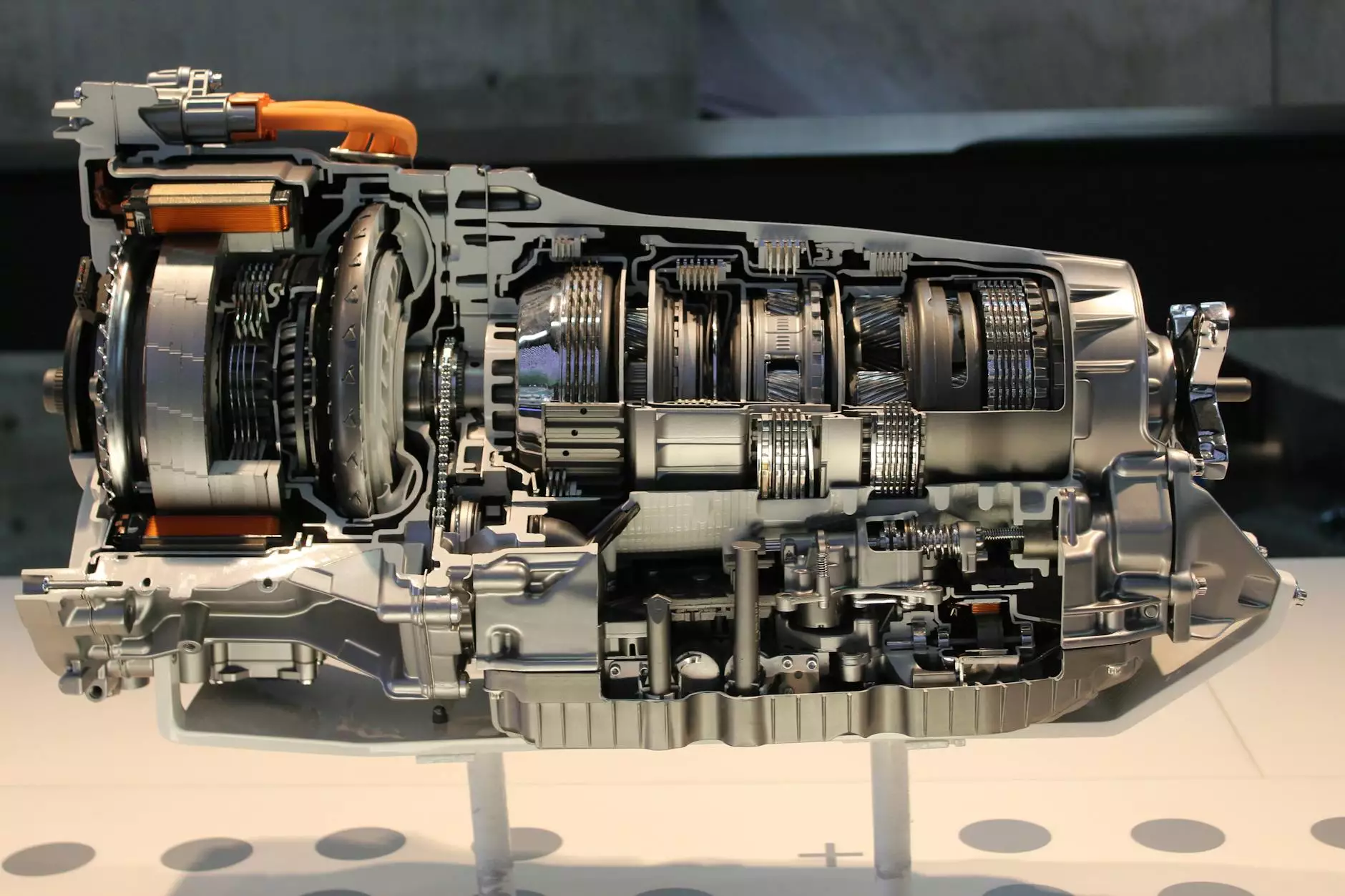The Importance of **Industrial Vacuum Cleaning Systems** for Modern Businesses

In today's fast-paced industrial landscape, maintaining a clean and safe environment is paramount. The use of industrial vacuum cleaning systems has become increasingly vital for various sectors as they provide efficient cleaning solutions that enhance productivity while ensuring workplace safety. This article delves into the necessity, benefits, and applications of industrial vacuum cleaning systems, highlighting how they revolutionize the cleaning process in businesses.
What Are Industrial Vacuum Cleaning Systems?
Industrial vacuum cleaning systems are specialized devices designed to clean large areas and heavy contaminants in various industrial settings. Unlike traditional vacuum cleaners used in homes, these systems are engineered to handle more substantial debris and hazardous materials, making them suitable for factories, warehouses, construction sites, and more. They come in various types, including central vacuum systems, portable vacuum units, and specialized machines for specific cleaning tasks.
Key Components of Industrial Vacuum Cleaners
- Motor: The heart of the vacuum that powers the suction mechanism.
- Filter System: Captures dust and particulates, ensuring minimal emissions.
- Suction Hose: Allows for reaching difficult areas while maintaining strong airflow.
- Cleaning Tools: Various attachments tailored for specific cleaning jobs.
- Tank: Stores collected debris; can be of varying sizes based on the application.
The Benefits of Implementing Industrial Vacuum Cleaning Systems
Industrial vacuum cleaning systems offer numerous benefits that make them indispensable for businesses aiming for operational excellence.
1. Enhanced Efficiency
By utilizing industrial vacuum cleaning systems, businesses can achieve higher cleaning efficiency compared to traditional methods. These systems are designed to cover larger areas more quickly, which in turn reduces downtime and allows employees to focus on their primary responsibilities.
2. Improved Health and Safety Standards
Maintaining a clean work environment reduces the risk of accidents and health issues caused by dust and hazardous materials. An effective industrial vacuum cleaning system can eliminate contaminants that could lead to respiratory issues or workplace injuries, thus enhancing overall safety.
3. Cost-Effectiveness
Investing in an industrial vacuum cleaning system can lead to significant cost savings in the long run. These systems are built to last and can handle more demanding cleaning needs, reducing the need for frequent replacements or repairs. Furthermore, a cleaner workspace can lead to greater productivity, ultimately impacting the bottom line positively.
4. Versatility in Applications
Industrial vacuum cleaning systems are designed to handle a multitude of applications. From removing fine dust in manufacturing facilities to extracting wet spills in food processing plants, these systems adapt to various cleaning challenges:
- Construction Sites: Efficiently managing debris and dust for a safer work environment.
- Manufacturing Plants: Keeping production areas free of contaminants that could affect production quality.
- Food Industry: Maintaining hygiene standards to meet regulatory compliance.
- Health Care: Ensuring sterile environments by reducing biohazard risks.
Types of Industrial Vacuum Cleaning Systems
When considering an industrial vacuum cleaning system, it is essential to understand the different types available on the market. Each type serves specific purposes and is designed for various cleaning requirements.
1. Central Vacuum Systems
Central vacuum systems are permanent installations within a facility, connected to a series of ducts. They are highly effective for large facilities, removing debris from various areas efficiently, making them ideal for factories or large warehouses.
2. Portable Vacuum Cleaners
Portable vacuum units provide flexibility and are essential for jobs that require mobility. These systems can be quickly moved from one location to another and are widely used in maintenance and cleaning tasks in warehouses and job sites.
3. Specialized Vacuum Systems
These systems are engineered to handle specific materials such as wet/dry vacuums for liquids and dust, or explosion-proof vacuums for hazardous environments. Choosing the right type of vacuum system is crucial based on the application and materials to be handled.
Choosing the Right Industrial Vacuum Cleaning System
Selecting the ideal industrial vacuum cleaning system for your business involves considering several factors:
- Type of Debris: Understand what materials require cleaning to choose an appropriate system.
- Space and Layout: Assess the work area to determine if a centralized or portable system suffices.
- Power Requirements: Consider the electric supply and power specifications of the vacuum cleaner.
- Filtration Efficiency: Look for high-quality filters that capture even the finest particles.
- Maintenance: Review maintenance requirements and ease of servicing for long-term use.
Maintaining Your Industrial Vacuum Cleaning System
Proper maintenance of your industrial vacuum cleaning system is essential to ensure longevity and optimal performance. Here are some maintenance tips:
1. Regular Filter Cleaning
Filter systems should be checked and cleaned regularly to maintain suction power and improve filtration efficiency. Depending on the type of debris handled, this may vary from weekly to monthly.
2. Inspect Hoses and Attachments
Ensure that hoses and cleaning attachments are free from blockages and damage, as this affects performance. Regular checks can prevent unexpected downtime.
3. Motor Maintenance
Monitor the vacuum motor routinely. Dust build-up can impact functionality, so it’s essential to clean the motor area as per the manufacturer’s guidelines.
4. Schedule Professional Servicing
Consider scheduling professional servicing annually to thoroughly assess and maintain your industrial vacuum cleaning system. This proactive approach can identify potential issues before they become major problems.
The Future of Industrial Vacuum Cleaning Systems
The advancement of technology continues to reshape the cleaning industry, with industrial vacuum cleaning systems following suit. Innovations such as automated vacuums, intelligent cleaning solutions, and enhanced filtration technologies are setting new standards for cleanliness in the industrial sector.
1. Automation and Smart Technologies
Automated and robotic vacuum cleaners are becoming increasingly popular, bringing efficiency to a new level. With smart sensors and intelligent programming, these systems can navigate complex environments, ensuring thorough cleaning with minimal human intervention.
2. Enhanced Energy Efficiency
As sustainability becomes a key consideration for businesses, manufacturers are focusing on creating energy-efficient vacuum systems that not only perform effectively but also reduce carbon footprints.
Conclusion
In conclusion, the role of industrial vacuum cleaning systems in maintaining cleanliness and safety in the workplace cannot be overstated. Their efficiency, versatility, and adaptability make them an essential asset for various industrial applications. By investing in the right system and adhering to proper maintenance, businesses can ensure a cleaner and safer work environment, leading to increased productivity and reduced operational costs.
Businesses such as TMM are at the forefront of providing quality cleaning solutions tailored to meet the needs of various industries. Embracing technology and innovation, TMM is committed to enhancing cleanliness and efficiency in workplaces across the board.



